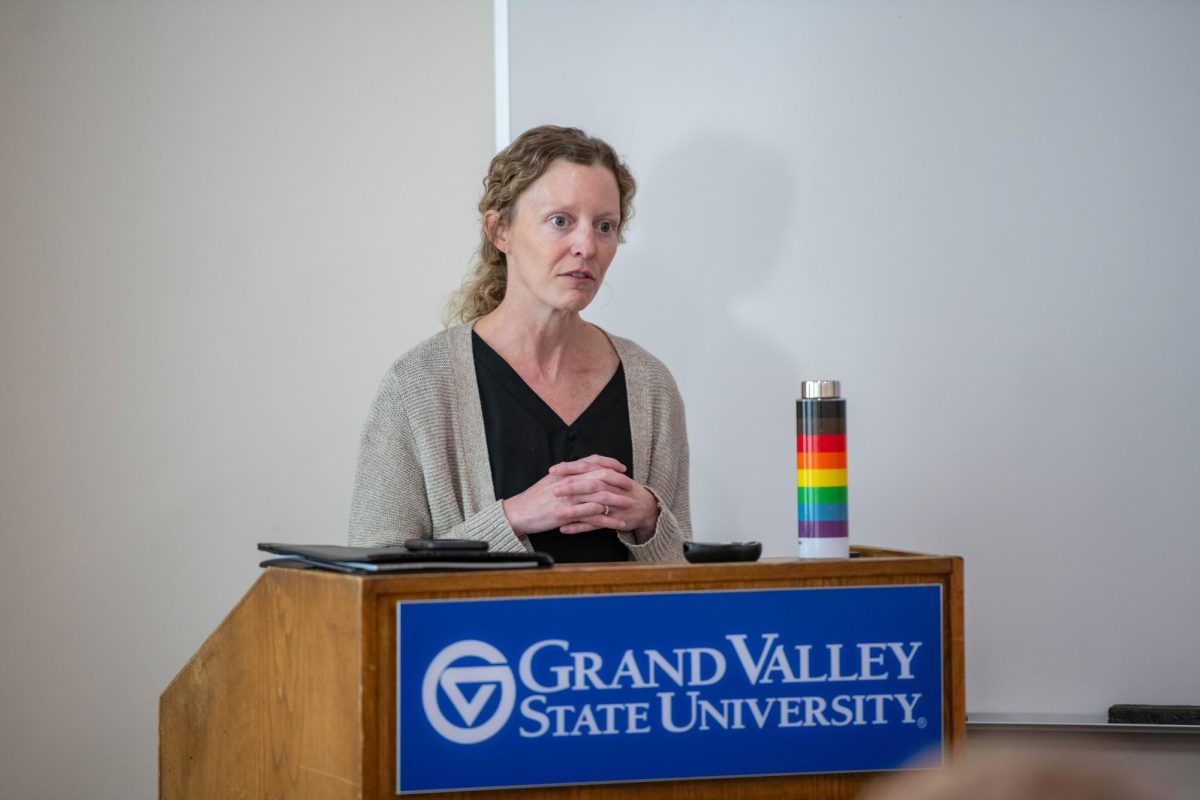Grand Valley State University’s Office of Multicultural Affairs (OMA) observed Banned Books Week by hosting a banned books discussion on Oct. 4. The event was part of the OMA’s Conversations of Color series and provided education, awareness and a call to protect books that are being censored.
OMA offers comprehensive programs and services to help celebrate and educate people on social justice efforts to build a diverse and inclusive campus. Since 2019, OMA has hosted Conversations of Color, an event series that provides a space for students to interact with each other while discussing various social justice topics and issues.
This event covered the history of book banning and how current groups are banning books to restrict information. Mae Zurita, the discussion facilitator, said that this censored information deserves to be shared no matter what.
“We’re advocating for any books that were banned or have yet to be banned to stay on shelves and for students to be able to (continue) accessing (them),” Zurita said.
While books are banned for a variety of reasons, the event focused primarily on stories banned for sharing marginalized identities, such as those written by or for the queer community and books that bring awareness to racial injustice.
Students were encouraged to read books that had been banned as a way to challenge or expand their worldview. The Conversations of Color event also started a discussion on students having access to books about sexual health for all identities.
“If we keep trying to restrict information, then we’re endangering people,” Zurita said.
The Banned Books event covered the importance of critically looking into the political reasons behind book banning. It specifically brought awareness to the changing of current and past narratives.
“All these blocks of information and restrictions we’re seeing have a larger motivation,” Zurita said. “We need to be very cautious.”
OMA hosted the Banned Books event with the additional aim of providing a safe space for students of color and queer identities.
“Students (of color and queer identities) are important for educating the general community. (They) can expand peoples’ worldviews just by existing,” Zurita said.
Almina Kujovic, a GVSU student, attended the Banned Books event due to the rising commonality of book banning and the potential dangers they pose.
“History repeats itself,” Kujovic said. “If we do not learn from the mistakes in history, then the cycle will repeat again and again.”
After attending the event, Kujovic reflected that reading certain banned books can encourage people to be more compassionate to others.
“I just hope that gaining the understanding of different viewpoints would make people think twice before jumping to (say), ‘Ban the book,’” Kujovic said.
Students were also encouraged to write letters to Michigan’s Board of Commissioners and attend the board’s meetings to speak out against the censorship of books.
Additionally, there are other ways people advocate against book banning. Currently there is a grassroots coalition organized by the Michigan Library Associated called MI Right to Read, a group that aims to “educate the public and oppose any legislation that infringes upon First Amendment rights and intellectual freedom.”










